The Path to Marriage Equality in GCN: Part 3 Commentary from Tomboktu
11th July 2016
To mark the anniversary of the marriage equality referendum, The Irish Left Archive is publishing a short series of articles on the evolution of discussion of same-sex couples, lgb families, and their legal recognition, as portrayed in the pages of Gay Community News in the 1990s. The first article in this series covered the years 1990 to 1994; the second article continued the story with material from 1995 and 1996. This article concludes the mini-series with articles from my collection of GCN issues from the remaining years of the 1990s, and a handful from 2000. (My collection is incomplete, and important developments may not be included because of that.)
The first item from these years is a report of a legal case from Hawaii, in which that state’s court had ruled that the ban on same-sex marriage was not constitutional. (The decision in the report was handed down in December 1996, but the article does not report that the judge who had made the order suspended it the following day pending an appeal to the Hawaii Supreme Court.)
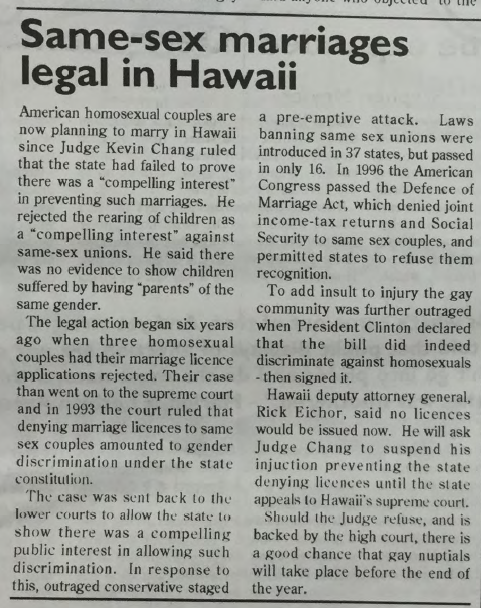
In May, GCN reported that same-sex couples in Ireland were to see a significant improvement in the rules on inheritance tax as part of a reform to reduce the amount paid by couples — gay or straight — living together. (Political junkies will be amused to see a certain junior minister at the time referred to as “Mr William O’Dea”. Does anybody know if he acquired some airs and gravitas on his first ministerial appointment or was GCN attributing them to him?)
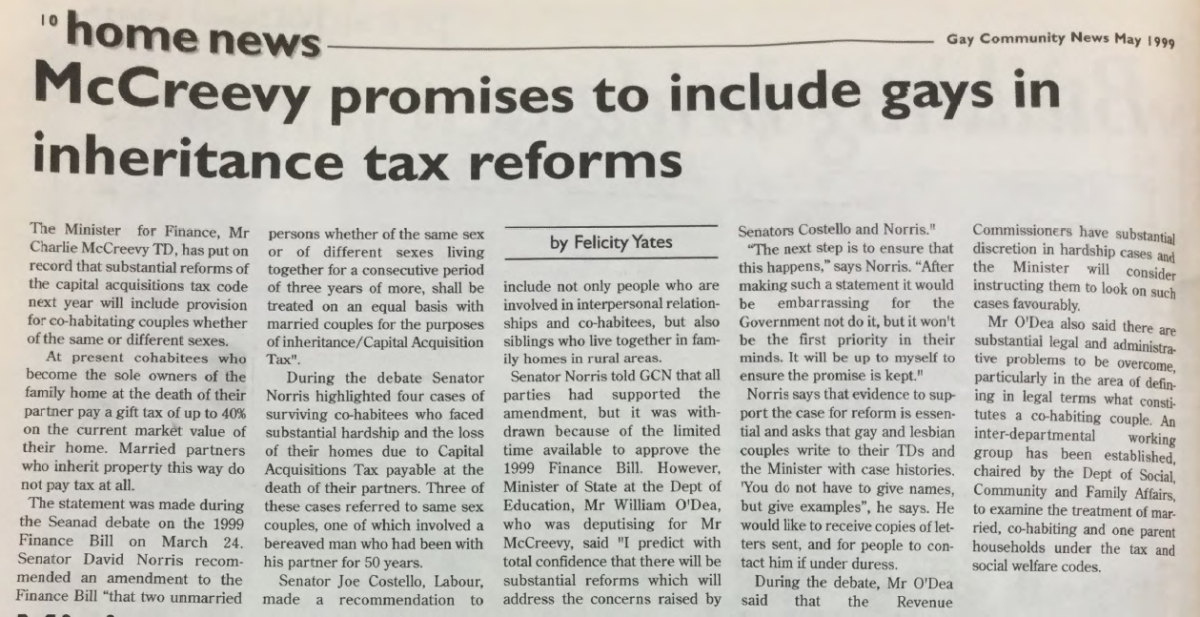
And then there’s a gap. I don’t know if that’s because nothing was being reported in GCN or because my collection of copies is missing issues with reports.
Two years later, developments overseas are noted, this time from Canada. The report summarises a decision by the Canadian Supreme Court to treat a same-sex relationship on the same basis as a mixed-sex non-marital relationship for the purposes of maintenance payments after the relationship ended.
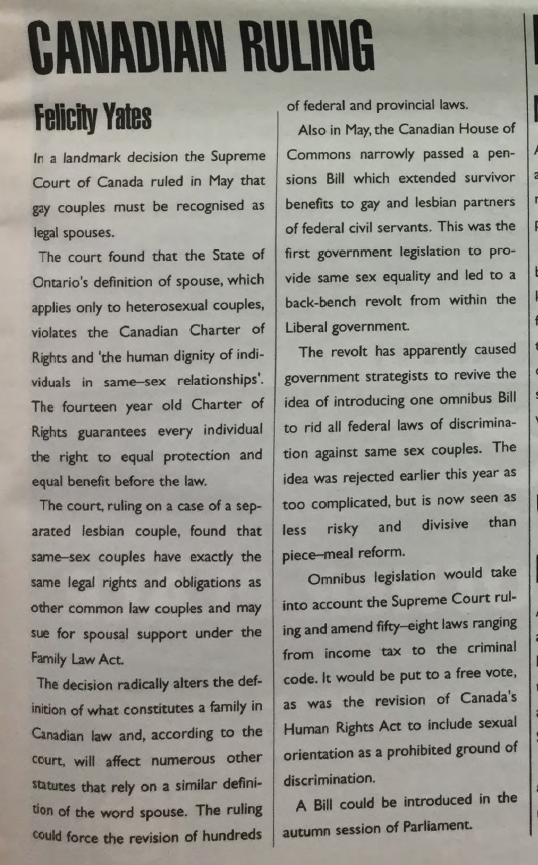
In 2000, the paper devoted a full page to a photo-feature to the marriage of an Irish couple. Of course, that ceremony had no legal standing, but it shows that for some in the lgb communities, there was a desire to have their relationship recognised at least socially as having the same significance as the legal relationship that mixed-sex couples could enter in churches and registry office.
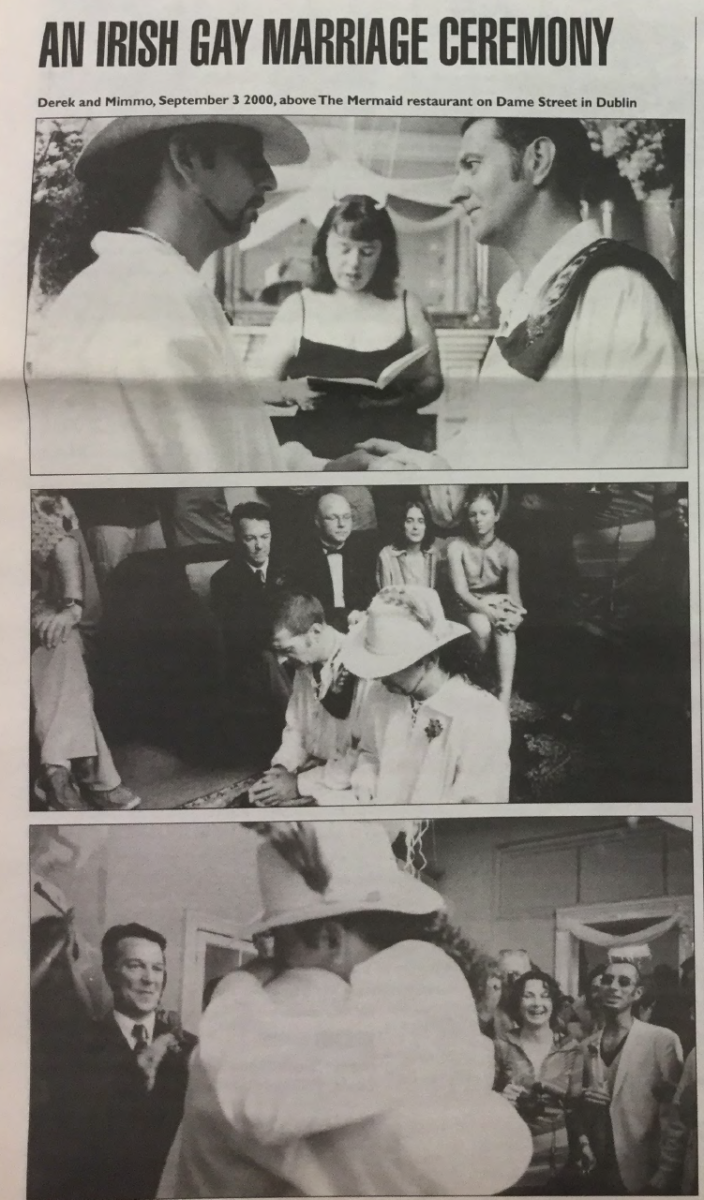
The following month, in October 2000, GCN carried a short article about the decision by the Dutch parliament to lift the ban on same-sex marriage, the first country in the world to do so. I think the article is remarkably low-key for such a ground-breaking development, with the Netherlands becoming the first country in the world to provide access to full legal marriage for same-sex couples.
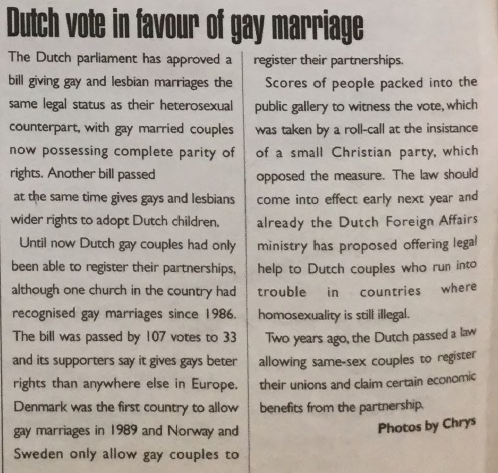
My collection ends with a depressing reminder of the limit of the recognition for same-sex couples that did exist in Irish law at the end of the millennium. In the same issue that the Dutch law opening marriage to same-sex couples is reported, GCN provides a half-page on how the Domestic Violence Act works for cohabiting couples, an speculating on how the term “husband or wife” might be interpreted.
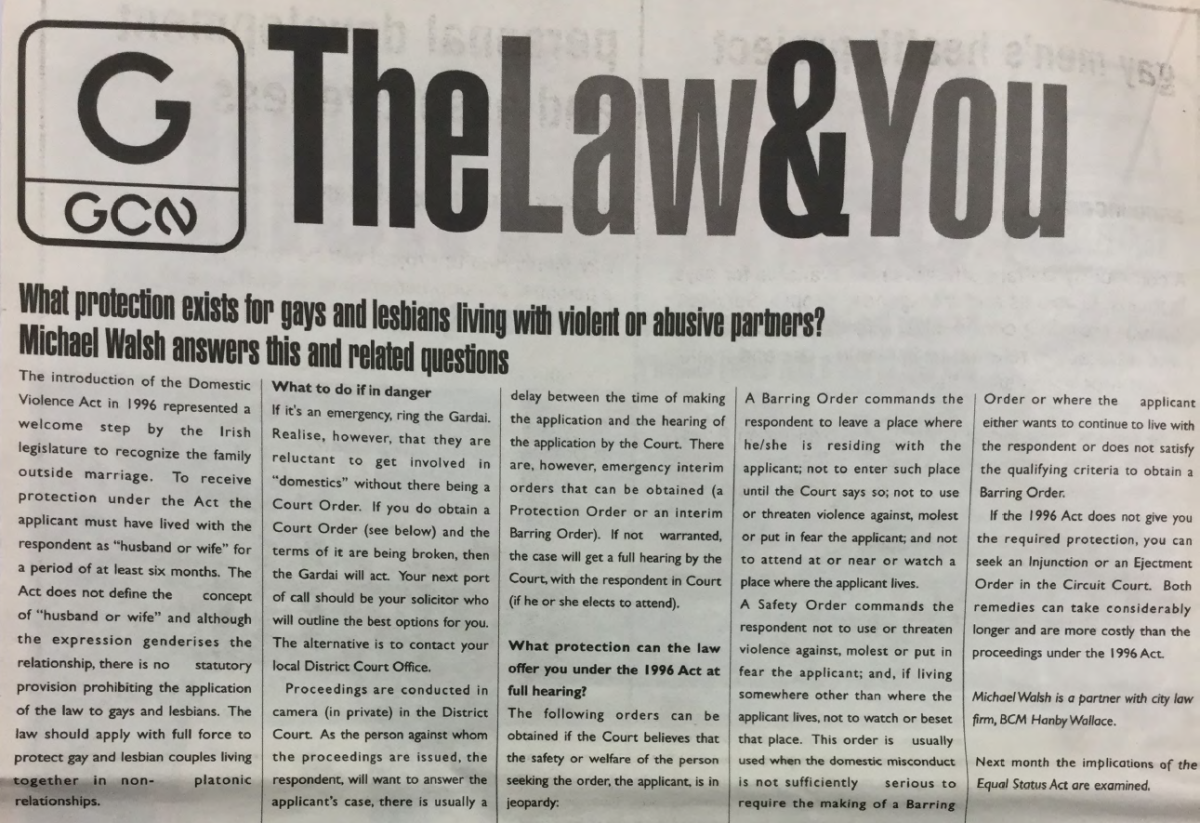
See also:
The Path to Marriage Equality in GCN: Part 1
From Tomboktu
It is a year since we voted not only to lift the ban on same-sex couples getting married, but to place an obligation on the state to put in place a law for marriage equality.
The Path to Marriage Equality in GCN: Part 2
From Tomboktu
To mark the anniversary of the marriage equality referendum, The Irish Left Archive is publishing a short series of articles on the evolution of discussion of same-sex couples, lgb families, and their legal recognition, as portrayed in the pages of Gay Community News in the 1990s. The first in this series covered the years 1990 to 1994; here we continue the story with material from 1995 and 1996. The articles are from my collection of GCN issues from the 1990s. (My collection is incomplete, and important developments may not be included because of that.)
Comments
You can also join the discussion on The Cedar Lounge Revolution
No Comments yet.
Add a Comment
Comments can be formatted in Markdown format . Use the toolbar to apply the correct syntax to your comment. The basic formats are:
**Bold text**
Bold text
_Italic text_
Italic text
[A link](http://www.example.com)
A link